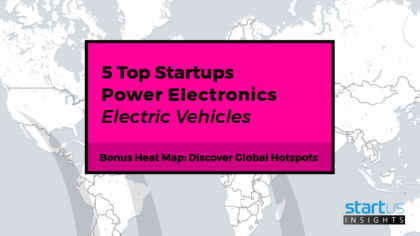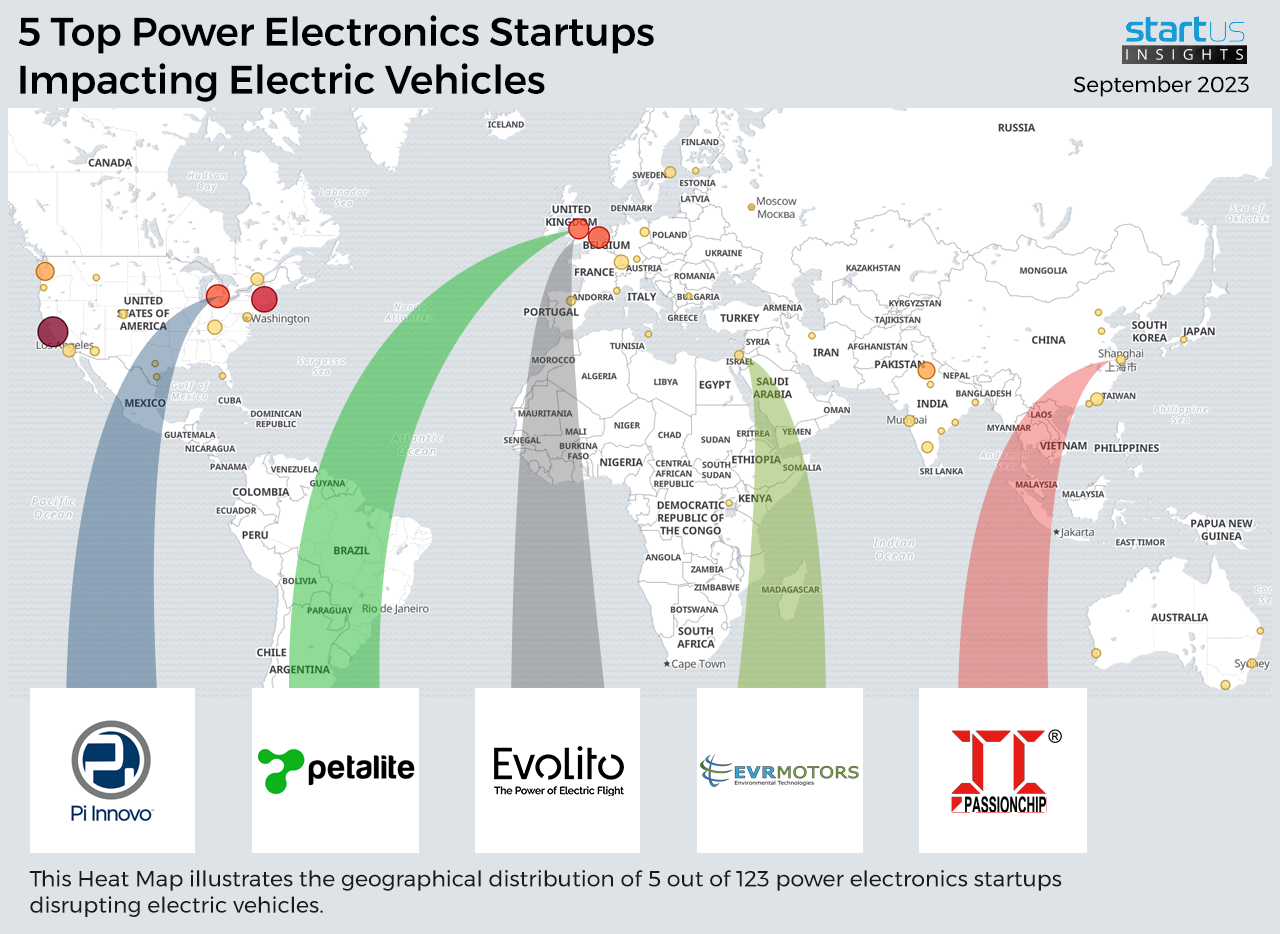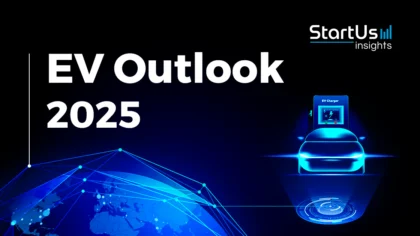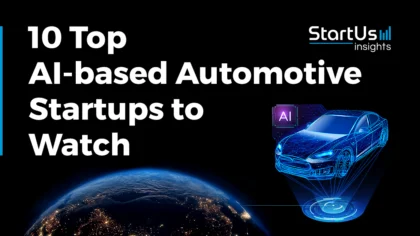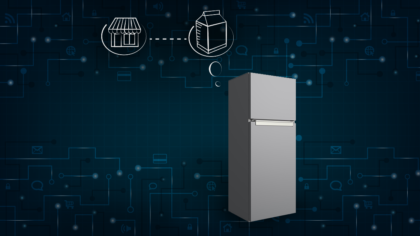Accelerate Productivity in 2025
Reignite Growth Despite the Global Slowdown
Our Innovation Analysts recently looked into emerging technologies and up-and-coming startups in the automotive industry. As there is a large number of startups working on a wide variety of solutions, we decided to share our insights with you. This time, we are taking a look at 5 promising startups offering power electronics in electric vehicles.
Heat Map: 5 Top Electric Vehicle Power Electronics Companies
Through the Big Data & Artificial Intelligence (AI)-powered StartUs Insights Discovery Platform, covering over 3 790 000+ startups & scaleups globally, we identified 123 power electronics solutions for electric vehicles. The Global Startup Heat Map below highlights the 5 EV power electronics startups you should watch as well as the geo-distribution of all 123 startups & scaleups we analyzed for this research. Based on the heat map, we see high startup activity in the US and the UK.
Interested to explore all 120+ EV power electronics solutions?
According to the Paris Agreement aimed at control over greenhouse gas (GHG) emissions, the amount of GHG from transportation alone amounts to 23% of the total. Governments and public bodies, automotive OEMs and their engineering suppliers framed their strategy towards vehicle electrification in order to reduce GHG. The core components in an Electric Vehicle (EV) comprise a battery, power electronics, a drivetrain, and charging units. The main purpose of this article is to showcase the most promising solutions in the area of power electronics, which accounts for 30% of the total EV cost and is the second most recent and hot EV topic – after batteries.
Power Electronics & Its Components
Power electronics is responsible for controlling and converting electrical power in the system. Major power electronics components and their functionalities in an EV system are as follows:
Inverter
Converts Direct Current (DC) from a Li-ion battery source into Alternating Current (AC) that is suitable for the traction electric motor to operate. UK-based startup Evolito develops an inverter and axial flux motors for electric vehicles. The SiC-based 800V inverter features high power density and operating efficiency compared to Si-based devices.
Voltage Converter
Converts DC/AC from one voltage level to another that stores the energy temporarily and releases the energy at a different voltage. There are mainly 2 modes of using such converters in EV such as:
- Converter for 48V system – essential for power transfer to a traction motor. The Indian company Altigreen started its journey with a 48V powertrain system for Hybrid Electric Vehicle and made the transition towards a full stack electric vehicle system developer including in-house developed converters.
- Converter for 1.2V system – essential for power transfer to auxiliary electronic devices. Passionchip is a Chinese startup that develops a 2.5V-5.5V to 0.6V-1.2V monolithic buck switching converter with integrated internal power MOSFET. It also features fast transient response and over-temperature shutdown protection.
Controller Unit
A controller unit is an inverter and converter combination that recharges the battery pack of an EV during regenerative braking, which develops kinetic energy while braking. The flow of energy to and from the battery is controlled using a controller unit in tandem with the Converter-Inverter combinations. UK-based Pi Innovo provides end-to-end system engineering services to the automotive industry and has come up with a vehicle control module that is adapted to a 24V vehicle application which is able to provide scalability for volume production in a short span of time.
Electric Motors
In place of an IC engine, motors are implemented to convert the electrical energy into mechanical energy for vehicle propulsion. Israeli EVR Motors develops scalable, competitive electric motors that are 50% lighter and 40% cheaper than RFPM motors. They function above 100 kW peak at 48V for typical electric vehicle motion.
What About The Other 118 Power Electronics Solutions?
While we believe data is key to creating insights it can be easy to be overwhelmed by it. Our ambition is to create a comprehensive overview and provide actionable innovation intelligence for your Proof of Concept (PoC), partnership, or investment targets. The 5 startups showcased above are promising examples out of 123 we analyzed for this article. To identify the most relevant solutions based on your specific criteria and collaboration strategy, get in touch.
